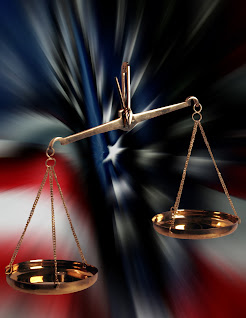The Tort of Battery
Under Washington State laws, what is the tort of battery? Here's my point of view (NOTE: please read our DISCLAIMER before proceeding).
DEFINITION OF A TORT
In Washington State, a "battery" is a tort defined as "an intentional and unpermitted contact with the plaintiff's person." Kumar v. Gate Gourmet, Inc., 180 Wn.2d 481, 504, 325 P.3d 193 (2014). The plaintiff must show that the defendant did the following to establish liability for battery:
THE INTENT ELEMENT
Establishing intent on the part of the defendant is an element of battery. "[T]he 'intent' element of battery is satisfied where a defendant knows to a 'substantial certainty' that his actions will result in the harmful or offensive touching." Id. at 504-05 (internal citations omitted).
–gw
A tort is "[a] civil wrong, other than breach of contract, for which a remedy may be obtained, usu. in the form of damages; a breach of a duty that the law imposes on persons who stand in a particular relation to one another." Black's Law Dictionary 1526 (8th ed. 2004).
THE TORT OF BATTERY
In Washington State, a "battery" is a tort defined as "an intentional and unpermitted contact with the plaintiff's person." Kumar v. Gate Gourmet, Inc., 180 Wn.2d 481, 504, 325 P.3d 193 (2014). The plaintiff must show that the defendant did the following to establish liability for battery:
(a) he [or she] acts intending to cause a harmful or offensive contact with the [plaintiff or a third party], or an imminent apprehension of such contact, and
(b) a harmful or offensive contact with the [plaintiff] directly or indirectly results.
Id. (citing Restatement (Second) of Torts § 13 (1965)).THE INTENT ELEMENT
Establishing intent on the part of the defendant is an element of battery. "[T]he 'intent' element of battery is satisfied where a defendant knows to a 'substantial certainty' that his actions will result in the harmful or offensive touching." Id. at 504-05 (internal citations omitted).
Thus, an individual "commits a battery where he or she performs '[a]n act which, directly or indirectly, is the legal cause of a harmful contact with another's person' and that act is intentional, is not consented to, and is otherwise unprivileged." Id. at 505 (citing, Garratt v. Dailey, 46 Wn.2d 197, 200, 279 P.2d 1091 (1955) (quoting Restatement (Second) of Torts § 13 (1934)) (internal quotation marks omitted). And "[t]hese elements are met where the plaintiff's consent to the contact is procured by fraud or duress." Id. (citing, Garratt, 46 Wn.2d at 201 (quoting Restatement (Second) of Torts § 13(b)) (internal quotation marks omitted).
THE OFFENSIVE CONTACT ELEMENT
"A bodily contact is offensive if it offends a reasonable sense of personal dignity." Id. (citing, Restatement (Second) of Torts § 19). Accordingly, "an offensive contact does not have to result in physical injury to constitute a battery." Id. (referencing, Seigel v. Long, 169 Ala. 79, 53 So. 753 (1910) (facts established claim for battery where defendant pushed plaintiff's hat back in order to see his face); Crawford v. Bergen, 91 Iowa 675, 60 N.W. 205 (1894) (facts established claim for battery where defendant placed his hand on the plaintiff's shoulder and asked him an insulting question)).
EXAMPLE: KUMAR v. GATE GOURMET, INC.
In Kumar v. Gate Gourmet, Inc., the employer (Gate Gourmet, Inc.) prohibited employees from both bringing food with them to work and leaving the premises to obtain food -- the policy was based upon security concerns. A group of employee-plaintiffs decided to sue their employer for violation of their religious beliefs when the employer provided them with beef/pork-based foods (in violation of their religion) for lunch that were deceptively designated by the employer as turkey-based, and the vegetarian options actually included animal by-products. When the employees complained, the employer refused to alter the plaintiffs' meals.
One claim, inter alia, was based on the tort of battery. Accordingly, the employees essentially alleged that "Gate Gourmet deceived them into eating food in violation of their religious beliefs, knowing that this would cause an offensive contact." See id. at 505. The Washington State Supreme Court held that the "allegations are sufficient to support a claim for battery at this stage." Id. (hyperlink added).
THE OFFENSIVE CONTACT ELEMENT
"A bodily contact is offensive if it offends a reasonable sense of personal dignity." Id. (citing, Restatement (Second) of Torts § 19). Accordingly, "an offensive contact does not have to result in physical injury to constitute a battery." Id. (referencing, Seigel v. Long, 169 Ala. 79, 53 So. 753 (1910) (facts established claim for battery where defendant pushed plaintiff's hat back in order to see his face); Crawford v. Bergen, 91 Iowa 675, 60 N.W. 205 (1894) (facts established claim for battery where defendant placed his hand on the plaintiff's shoulder and asked him an insulting question)).
EXAMPLE: KUMAR v. GATE GOURMET, INC.
In Kumar v. Gate Gourmet, Inc., the employer (Gate Gourmet, Inc.) prohibited employees from both bringing food with them to work and leaving the premises to obtain food -- the policy was based upon security concerns. A group of employee-plaintiffs decided to sue their employer for violation of their religious beliefs when the employer provided them with beef/pork-based foods (in violation of their religion) for lunch that were deceptively designated by the employer as turkey-based, and the vegetarian options actually included animal by-products. When the employees complained, the employer refused to alter the plaintiffs' meals.
One claim, inter alia, was based on the tort of battery. Accordingly, the employees essentially alleged that "Gate Gourmet deceived them into eating food in violation of their religious beliefs, knowing that this would cause an offensive contact." See id. at 505. The Washington State Supreme Court held that the "allegations are sufficient to support a claim for battery at this stage." Id. (hyperlink added).
Learn More
If you would like to learn more, then consider contacting an experienced Washington State Employment Discrimination Attorney as soon as possible to discuss your case. Please note: the information contained in this article is not offered as legal advice and will not form an attorney-client relationship with either this author or Williams Law Group, PS; please see our DISCLAIMER.









